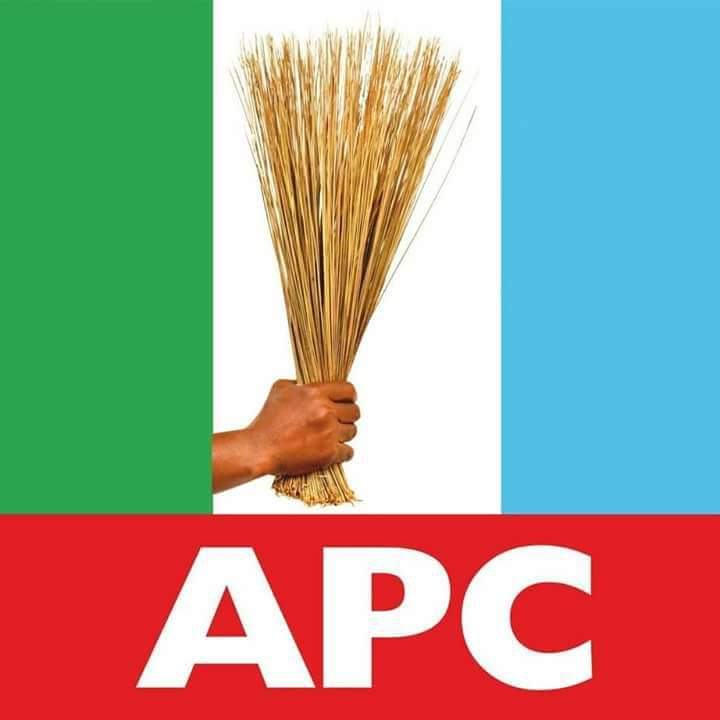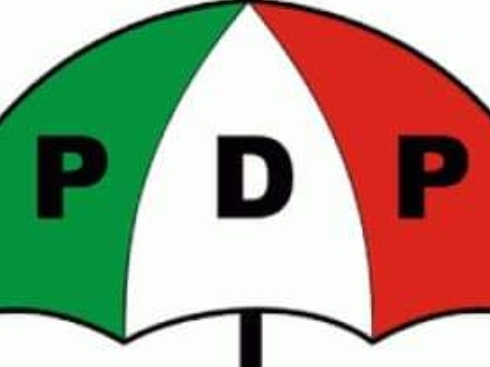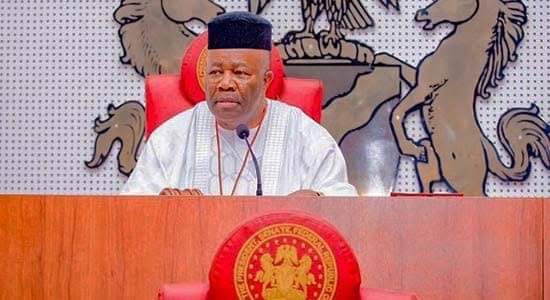How Retired Judge, Bulkachuwa Received Bribe From Former First Lady To Uphold Election Of Son-In-Law As Governor
During the Senate valedictory session on Saturday, a former Nigerian senator, Adamu Bulkachuwa, confessed to influencing the decisions of his wife, Zainab, while she was serving as a judge and President of the Court of Appeal.
Bulkachuwa, who represented Bauchi North senatorial district in the 9th Senate, confirmed infringing on his wife’s “freedom and independence” as a judicial officer.
Zainab presided over the 2007 Kebbi and Sokoto governorship elections petition tribunal.
She also presided over the suit in which Timipre Sylva, former governor of Bayelsa, challenged the nomination of Seriake Dickson, an ex-governor of the state, as the candidate of the Peoples Democratic Party (PDP).
“Particularly, my wife, whose freedom and independence I encroached upon while she was in office. And she has been very tolerant and accepted my encroachment and extended her help to my colleagues,” the former lawmaker had said.

The confession however serves as a validation of a Wikileaks publication on US diplomatic cable which contained serious allegations that retired Justice Bulkachuwa received millions of Naira as bribes to give favorable judgments to politicians on election disputes.
Dated 25th of April 2008, the publication obtained by SaharaReporters exposed how the then Nigerian First Lady Turai Yar’Adua bribed the retired Appeal Court President to uphold the election of her son-in-law, Usman Dakin-Gari as governor of Kebbi State.
Dakin-Gari served as governor of Kebbi State from 2007 to 2015.
According to the Wikileaks publication, former governor of Sokoto, Attahiru Bafarawa, also bribed retired Justice Bulkachuwa to overturn the election of political rival, Aliyu Wamakko.
The publication read, “SUBJECT: (C/NF) NIGERIA: CORRUPT COURT REVERSES TRIBUNAL RULINGS REF: A. 07 ABUJA 1693 ¶B. ABUJA 320. Classified By: Pol/C Walter Pflaumer, reasons 1.4 (b, c & d).
“(C//NF) SUMMARY: On April 10, the Kaduna Court of Appeal, which heard all appeals to electoral tribunal rulings in Nigeria’s North-West zone, reversed the Kebbi State Election Tribunal decision to overturn Usman Dakin-Gari’s (People’s Democratic Party, PDP) gubernatorial election. The next day, the same court nullified the election of Aliyu Wamakko (PDP), reversing the Sokoto State Election Tribunal’s ruling upholding that election. Neither Dakin-Gari nor Wamakko had been part of the PDP prior to the Independent National Electoral Commission (INEC) deadline for the substitution of candidates (the key point at issue in both cases); yet, the court upheld Dakin-Gari’s election and invalidated Wamakko’s.
“The decision of the appeal court to render contradictory judgments in the two seemingly identical cases has prompted criticism, and speculation of judicial impropriety and corruption. First Lady Turai Yar’Adua is alleged to have bribed Appeal Court Justice Zainab Bulkachuwa to uphold the election of her son-in-law, Usman Dakin-Gari. Former governor of Sokoto, Attahiru Bafarawa, is also accused of bribing the same judge to overturn the election of political rival Aliyu Wamakko. END SUMMARY.
“(C) In conversation with PolOff April 23, Kabiru Turaki (strictly protect), prominent lawyer who represented President Yar’Adua at the Presidential Election Tribunal, and was an aggrieved rival to Dakin-Gari for the PDP gubernatorial nomination in Kebbi, contended that the Sokoto and Kebbi cases were nearly identical, and should have led to similar (if not identical) rulings. Turaki said that in both cases, the candidates who were declared the winners had not been properly nominated by the People’s Democratic Party (PDP).
“He noted that both had decamped from the All Nigeria People’s Party (ANPP) to the PDP, but only after INEC’s February 14, 2007 deadline to substitute candidates. (Comment: Turaki is an intelligent, astute lawyer, who possesses an impressive knowledge of the electoral law. While he stood to benefit directly from a re-run in Kebbi, where he had a good chance to replace Dakin-Gari as the PDP candidate, we believe his assessment of what may have transpired at the appeals court remains honest. End Comment.)
“(C//NF) In the Kebbi case, Turaki alleged that First Lady Hajiya Turai Yar’Adua intervened on behalf of her son-in-law Dakin-Gari (he wed President Yar’Adua’s daughter Zainab last June) by bribing Justice Zainab Bulkachuwa to rule in Dakin-Gari’s favor. Turaki claimed that, on April 10, the First Lady approached Bulkachuwa in Kaduna, as a fellow northern Muslim woman, and “influenced” her to uphold Dakin-Gari’s election. Turaki also asserted that Umaru Abdallahi, President of the Federal Court of Appeal which oversees the nation’s state election tribunals, unlawfully visited Bulkachuwa in her Kaduna chambers prior to the announcement of the verdict. Bulkachuwa’s ruling, according to Turaki, was replete with “faulty, shoddy legal reasoning,” and was not an adequate judgment at all. In particular, Turaki said the judgment had been merely a “few lines scribbled on a piece of paper,” not a comprehensive analysis addressing the substantive merits in the case.
“The fact that the court has yet to publish the judgment as required by law, several days after it had been announced, is further proof of judicial impropriety, Turaki added. (Comment: Post has reported other allegations of possible corrupt practices involving First Lady Turai elsewhere, see Ref B. The First Lady may have considered a favorable ruling for her daughter’s husband in the family’s best interest.
“Such allegations, whether true or not, undermine the President’s apparent commitment to the rule of law; see Ref C. The Kaduna court also upheld the election of Ibrahim Shema (PDP), a close associate of President Yar’Adua, as Katsina governor. We do not yet know, however, whether this decision was also a result of “influence,” or was on cogent legal grounds. End Comment.)
“(C//NF) With respect to the Sokoto decision, Inuwa ABUJA 00000780 002 OF 002. Abdul-Qadir (strictly protect), Sokoto state Attorney General and reliable Mission contact, told PolOff April 19 that former Sokoto governor, Attahiru Bafarawa (Democratic People’s Party, 1999-2007) also approached Justice Bulkachuwa and bribed her to quash rival Aliyu Wamakko’s election and order fresh polls. (Note: Abdul-Qadir’s appointment as Sokoto State Attorney General is not/not affected by the ruling to overturn Wamakko’s election. End Note.) Abdul-Qadir claimed that Bafarawa, who he believed was currently studying in the U.S., asked Bulkachuwa and her husband to meet him in the States, and bribed her there to overturn the election. (Note: It is not clear whether Wamakko will be allowed to stand on the banner of the PDP in the Sokoto by-election, as the court’s ruling effectively disqualified him for the nomination as bona fide PDP candidates. End Note.)
“(C//NF) While offering no proof, Abdul-Qadir claimed that Bafarawa received the funds he used to bribe Bulkachuwa from Iran. To that end, Abdul-Qadir asked for information on Iran’s possible activities in Nigeria, Bafarawa’s current activities in the U.S., and Bulkachuwa’s alleged travels to the U.S. (PolOff, of course, demurred).
“Abdul-Qadir claimed the Sultan of Sokoto was seeking the information out of concern that Iran may be jointly funding Bafarawa and the Islamic Movement in Nigeria (IMN), which Abdul-Qadir said the Sultan believes is targeting him along with some Sunni imams (Post will report more on the IMN, septel). (Note: The Sultan’s brother Mu’azu Abubakar, who has provided useful information to PolOff in the past and who appears plugged-in to the goings on in Sokoto, confirmed that the Sultan was seeking information about Iranian activities. End Note.)
(Comment: We, in any case, question these allegations of Bafarawa’s ties to Iran and the IMN. We note that Bafarawa and Wamakko fell out in 2005 when the latter was deputy governor, and that Bafarawa is reportedly enormously wealthy, independent of whatever wealth he may have acquired in office, and would not need external funds to bribe a judge.
“(C//NF) COMMENT: While some observers have heralded the invalidation of many gubernatorial and state elections as evidence of an increasingly independent and robust judiciary, poised to challenge a corrupt, iniquitous political system, the Kebbi and Sokoto appeals cases illustrate that this is far from a universal situation, and that judicial corruption remains endemic in Nigeria.











































